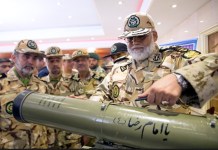North Korea considers the US decision to provide Australia with nuclear submarines under the AUKUS security pact as “dangerous” as it violates the strategic balance in the Asia-Pacific region and triggers a nuclear arms race, a North Korean ministerial foreign news section chief told the Korean Central News Agency on Monday.
On Wednesday, Australia, the United Kingdom and the United States announced a defense partnership dubbed AUKUS, which allows Australia to acquire nuclear-propelled submarines from the two partners.
“The US has recently struck the trilateral security partnership with Britain and Australia and decided to transfer the technology of building a nuclear-powered submarine to Australia.
These are extremely undesirable and dangerous acts which will upset the strategic balance in the Asia-Pacific region and trigger off a chain of nuclear arms race,” the North Korean official said.
The official added that “it is quite natural that neighboring countries including China condemned these actions as irresponsible ones,” saying that the nuclear submarine deal is “destroying the peace and stability of the region and the international nuclear non-proliferation system.”

Pyongyang condemns the “double-dealing attitude” of the US, calling it “the chief culprit toppling the international nuclear non-proliferation system.”
The official said that the current situation once again showed that the international security environment is constantly changing, which proves that North Korea should never stop “bolstering the capabilities for national defense.”
After AUKUS security pact was signed on Wednesday, several countries, including Russia and China, have expressed their concerns over the partnership and called for compliance with the Treaty on the Non-Proliferation of Nuclear Weapons.





